Publications
Articles, publications, books, tools and multimedia features from the U.S. Institute of Peace provide the latest news, analysis, research findings, practitioner guides and reports, all related to the conflict zones and issues that are at the center of the Institute’s work to prevent and reduce violent conflict.
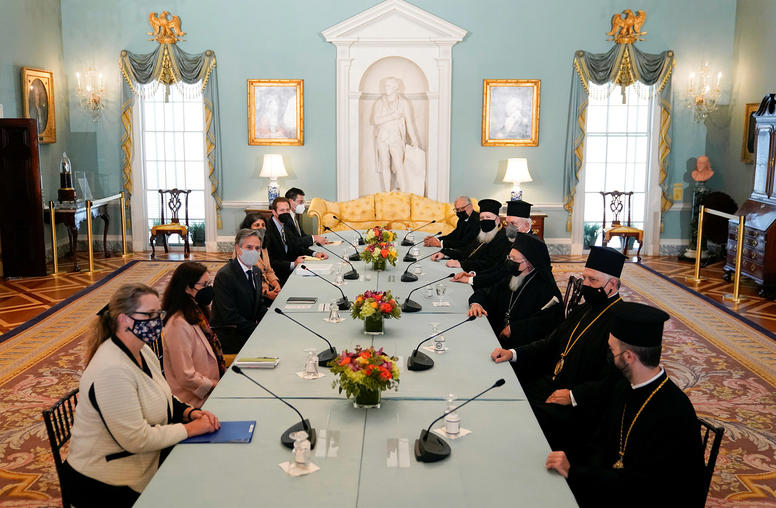
Advancing Global Peace and Security through Religious Engagement: Lessons to Improve U.S. Policy
Since 2001, when the Bush administration created a unit within the White House to work on faith-based initiatives, Democratic and Republican administrations alike have sought to engage religious actors worldwide in support of their diplomatic, development, and defense initiatives. This report, based on the authors’ decades of experience working within and outside government, offers specific suggestions for steps the U.S. government can take to clarify the nature of its religious engagement mission and to better coordinate that mission in relation to its other peacebuilding and national security priorities.
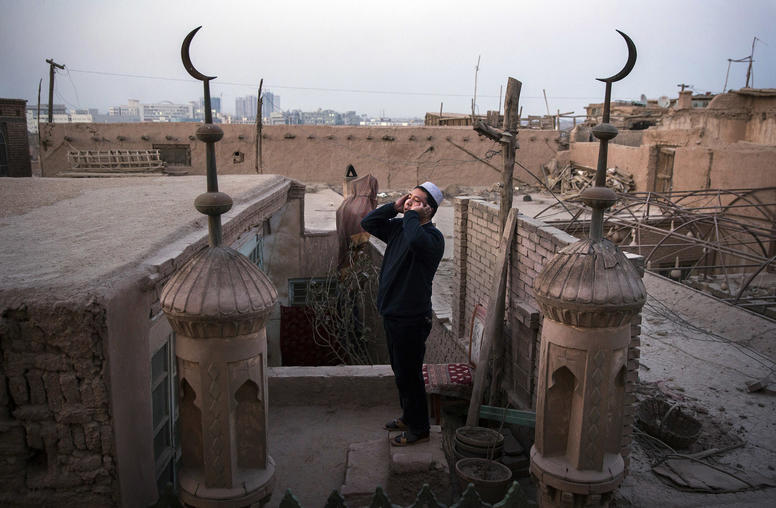
Finding Common Ground on U.S. International Religious Freedom Policy
On May 12, Secretary of State Antony Blinken issued the Biden administration’s first annual religious freedom report. It was accompanied by a strong speech, highlighting the importance of the issue and singling out countries such as Saudi Arabia, Iran, Russia and Nigeria, among others, for their particularly severe violations. The secretary also made a point to establish that the Biden administration’s approach emphasizes that the right to religious freedom is one component of an integrated human rights agenda. This stands in contrast to others who view religious freedom to be of unique importance and deserving of singular attention.
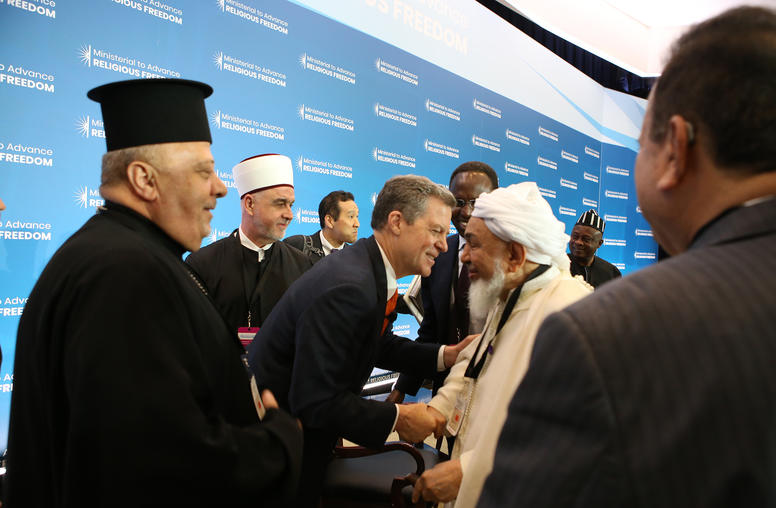
Four Thoughts on Advancing Religious Engagement in Diplomacy and Development
After nearly 20 years and across three successive U.S. administrations, it is clear that a bipartisan consensus exists among senior foreign affairs leadership that engaging religious actors to advance key American diplomatic, national security, and development objectives needs to be a priority. With some 84 percent of the world’s population expressing a faith affiliation, the role of religion as a social force around the world—and one that figures centrally in many peacebuilding contexts—cannot be ignored in our foreign relations.
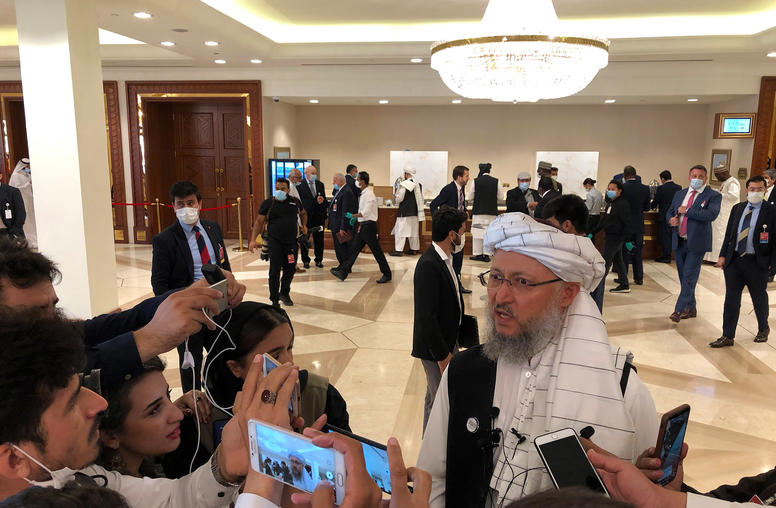
Whither Islam in Afghanistan’s Political System After the Taliban Talks?
The question of how and where Islam should fit into future legal and political frameworks has emerged as a major sticking point in the talks between the Taliban and the Afghan government in Qatar. How this question is resolved will be closely watched by Afghans, who want to ensure their hard-won rights are not sacrificed for the sake of a deal with the Taliban—Afghan women in particular have much at stake. The international community will similarly scrutinize the outcome, and their engagement with Afghanistan after the talks is expected to be conditioned on the contours of any political settlement.
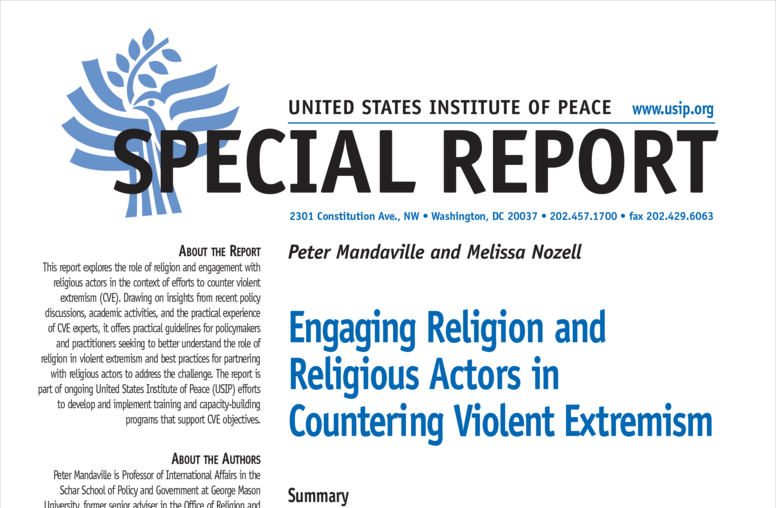
Engaging Religion and Religious Actors in Countering Violent Extremism
By more fully understanding the role of religion in violent extremism and adopting a broad-based and inclusive approach to engaging religious actors, policymakers and practitioners can better advance countering violent extremism objectives. In this report, a former senior policy adviser and a USIP senior specialist explore the nexus of religion and violent extremism.